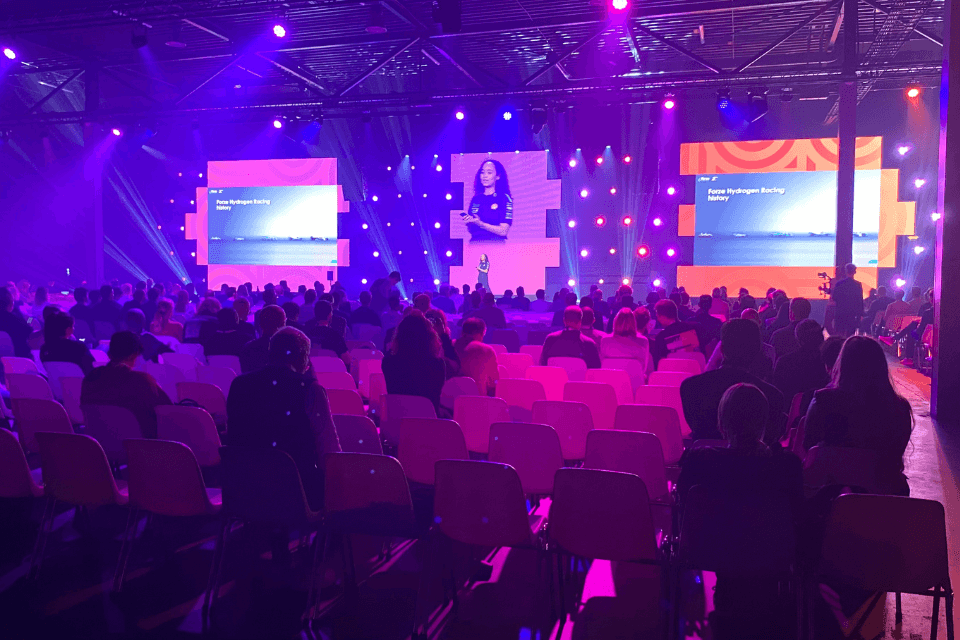WSAI 2023: Shaping the future of AI

At the Unesco World Heritage Site, Taets Art and Event Park, experts in AI convened to explore AI's role and development strategies. Since its inception in 2017 by Inspired Minds!, this conference has been the paramount platform inviting global leaders to discuss AI's risks, benefits, and applications. WSAI 2023 presented over 80 talks across 6 streams, roughly 20 interactive workshops and around 100 exhibitor booths, including a booth where you could get an NFC chip implanted in your hand.
AI on the Brink
This year's theme, 'AI on the Brink: Shaping the Future of Humanity', emphasised the role of Generative AI. It also addressed concerns regarding AI's rapid progress, examining its applications in development, creativity, and its ability to emulate human innovation.
The event saw discussions surrounding the EU AI Act, the first regulation on artificial intelligence. The EU AI Act aims to ensure that AI technologies are developed and used in a manner that respects fundamental human rights, values, and ethics. It also addresses transparency, accountability, data usage, safety, traceability, non-discriminatory and environmentally friendly concerns.
Empowering nonprofits
Kickstart.ai ran an interactive workshop “Empowering Nonprofits: Data-driven strategies for the Dutch Food Bank”, where they engaged with a room full of people working together and coming up with ambitious ideas. The participants shared some fantastic suggestions: donating devices to food bank users who were facing barriers to access digital systems, creating personal profiles where users could express their allergies or dietary requirements, and compiling lists of the top 10 most-needed foods for local food banks so that specific items can be distributed to locations where they’re in short supply.
AI startup scene
WSAI's choice of Amsterdam is no accident. The Netherlands boasts the highest density of AI startups per capita in the EU. According to the Global Observatory of Urban Artificial Intelligence (GOUAI), out of 165 initiatives in 63 cities, Amsterdam leads the pack with 22. Amsterdam's vibrant community of technology startups and innovators has transformed it into a living lab demonstrating AI's impact on various sectors, including fintech, creative industries, life sciences and health.
The Dutch government's approach via public-private partnerships fosters AI development and economic use while implementing safeguards for the future. Projects like Amsterdam AI, a coalition of businesses, local government and academia, best represent the collaborative ecosystem within the Amsterdam area. Pioneering projects like the DELTA Lab at the University of Amsterdam and the Innovation Centre for Artificial Intelligence (ICAI) testify to Amsterdam's AI-centred innovation.
Deel dit bericht
Reacties
Er zijn nog geen reacties.
Plaats een reactie
Je moet ingelogd zijn om een reactie te plaatsen.
